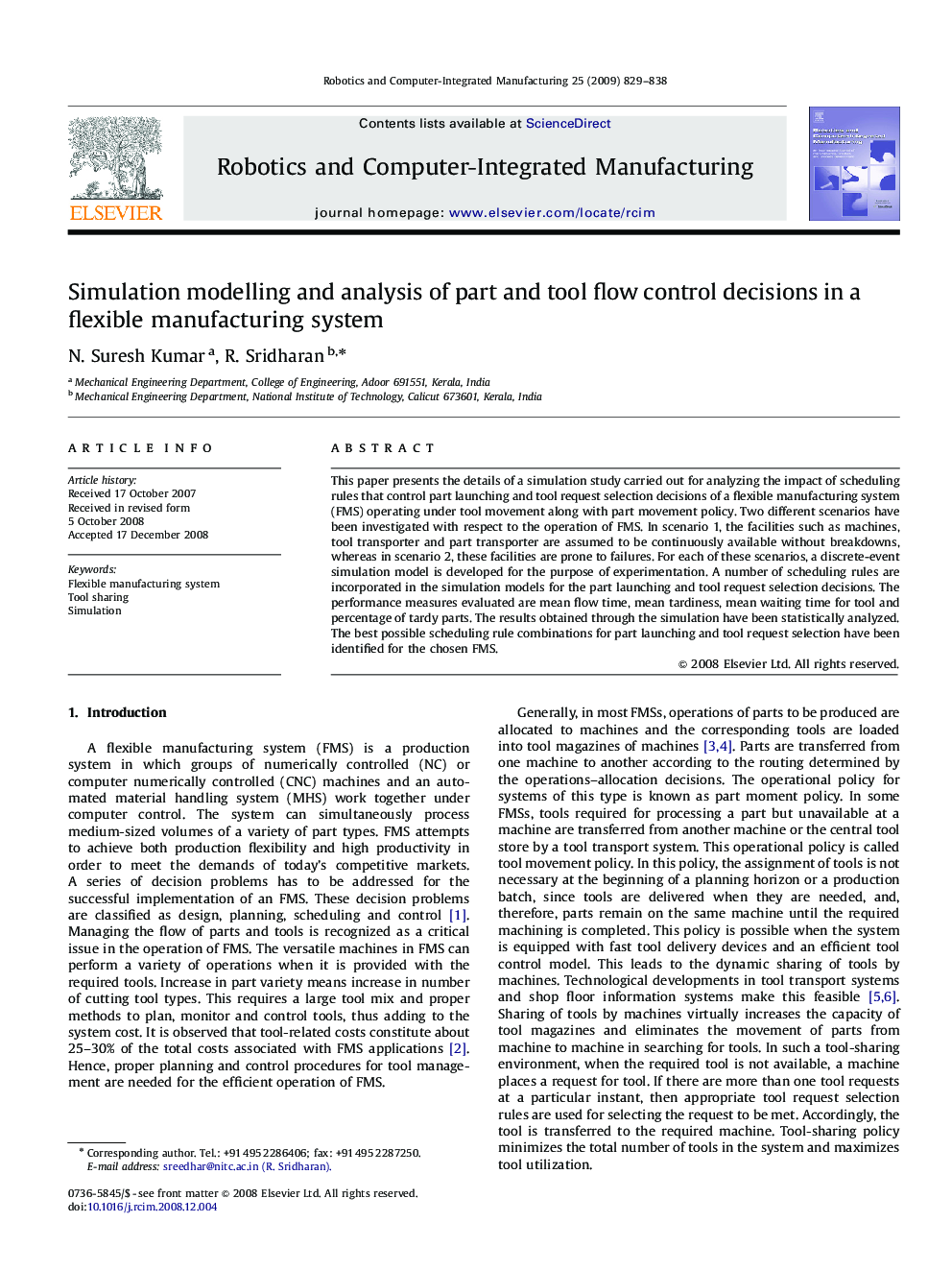| Article ID | Journal | Published Year | Pages | File Type |
|---|---|---|---|---|
| 413777 | Robotics and Computer-Integrated Manufacturing | 2009 | 10 Pages |
This paper presents the details of a simulation study carried out for analyzing the impact of scheduling rules that control part launching and tool request selection decisions of a flexible manufacturing system (FMS) operating under tool movement along with part movement policy. Two different scenarios have been investigated with respect to the operation of FMS. In scenario 1, the facilities such as machines, tool transporter and part transporter are assumed to be continuously available without breakdowns, whereas in scenario 2, these facilities are prone to failures. For each of these scenarios, a discrete-event simulation model is developed for the purpose of experimentation. A number of scheduling rules are incorporated in the simulation models for the part launching and tool request selection decisions. The performance measures evaluated are mean flow time, mean tardiness, mean waiting time for tool and percentage of tardy parts. The results obtained through the simulation have been statistically analyzed. The best possible scheduling rule combinations for part launching and tool request selection have been identified for the chosen FMS.
